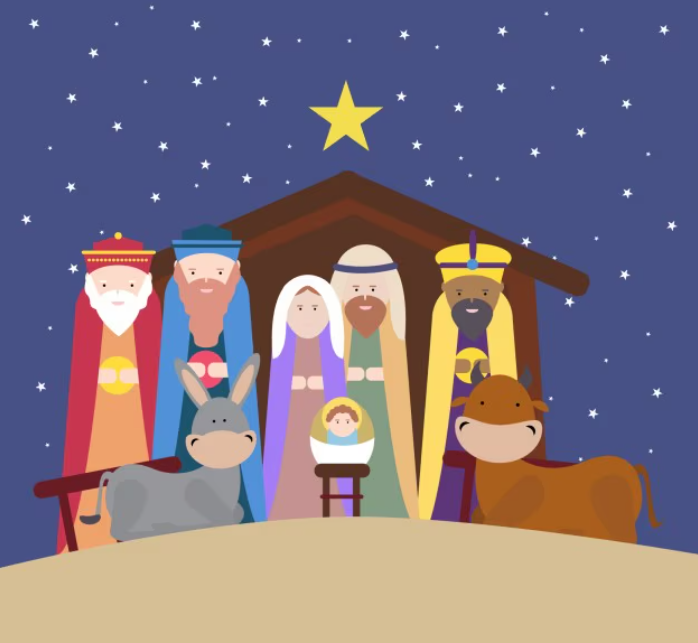Third Week of Advent: Monday, December 16, 2024
The story of Christmas can sometimes seem like fable. It's important to remember how the Bible presents the birth of Jesus to us -- as a matter of history, not fantasy.
Pastor Eric Gawura
12/16/20242 min read


Third Week of Advent: Monday, December 16, 2024
We took a little break from our sermon series A Special Christmas Special this week as our Sunday School children shared the Christmas Good News with us by acting out the Readings dealing with our Savior’s birth. Their skit was entitled appropriately enough The Savior’s Birth: A Nativity Skit.
The skit began with the Narrator reading Luke 2:1-5:
“And it came to pass in those days that a decree went out from Caesar Augustus that all the world should be registered. This census first took place while Quirinius was governing Syria. So all went to be registered, everyone to his own city. Joseph also went up from Galilee, out of the city of Nazareth, into Judea, to the city of David, which is called Bethlehem, because he was of the house and lineage of David, to be registered with Mary, his betrothed wife, who was with child” (Luke 2:1–5, NKJV).
There is always a little danger in children’s Christmas programs, and it’s this: In having children act out the “story” of Christmas it becomes just that, a story, something that comes across as make-believe, a fable like Little Red Riding Hood or Snow White and the Seven Dwarves.
The reading above, however, reminds us that the events narrated are history. Jesus was born to a young virgin named Mary in the town of Bethlehem during the reign of Caesar Augustus, the first Emperor of the Roman Empire. Quirinius was governing Syria at that time. Jesus’s birth coincided with the census ordered by Augustus which required everyone to return to their hometowns for registration. So Mary and her by-then husband, Joseph, traveled from Nazareth in Galilee to Bethlehem to be registered, as this was Joseph’s ancestral hometown. These places can be found on a map, and the persons are part of the public record.
Santa Claus, Rudolph, and Santa’s elves which are such a big part of cultural Christmas are fiction, and they do a lot to give the season its sense of fantasy. Mary and Joseph, the angels and the Shepherds, and the Wisemen are in danger of being sucked into that sense of fantasy, too, unless we pay careful attention to the way that the narrative of Jesus’s birth is presented in the Bible, not as a fable or fantasy story, but as historical accounts of real people and real events.
When we keep the infancy accounts of Jesus before us as real human history, then Christmas takes on a whole new dimension for us. The events surrounding Christ’s birth are an in-breaking of God into human history to inaugurate the life and events that will ultimately achieve and secure our salvation from sin and condemnation.
Prayer: Dear Lord, I admit that at times the account of Christ’s birth takes on an air of fantasy and make-believe in my mind. So thank you for your Word which reminds me that all of it is human history. My salvation isn’t a matter of fables and children’s stories, but of real history. Therefore it is certain. Thank you for your Word which reminds me of all of this. In Jesus’ name I pray. Amen.


